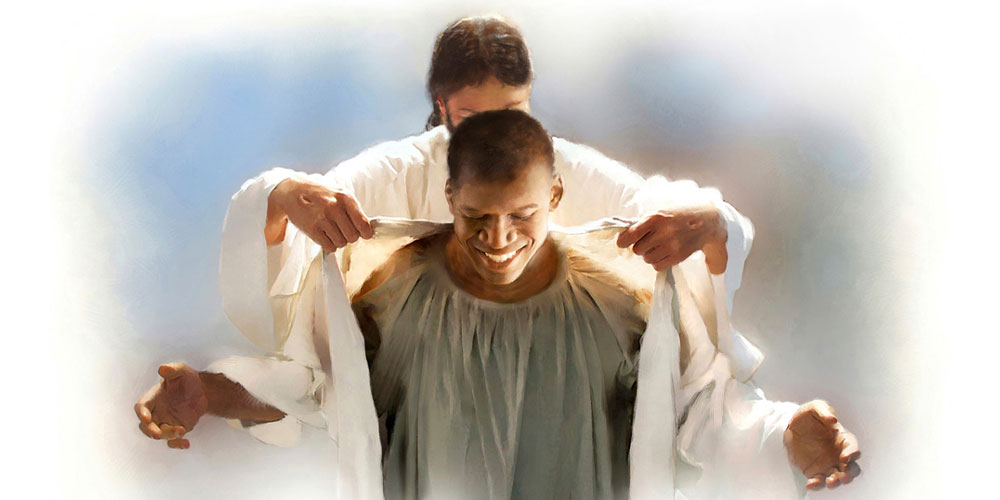 |
“Then one of the elders asked me, ‘These in white robes—who are they, and where did they come from?’ I answered, ‘Sir, you know.’ And he said, ‘These are they who have come out of the great tribulation; they have washed their robes and made them white in the blood of the Lamb’ ” (Revelation 7:13,14).
They say you’re not supposed to wear white after Labor Day. This, however, wasn’t so much a fashion statement as it was a social or an economic statement.
Dirty and sinful
Back in the days of dusty dirt roads (even in big cities) and before the days of air conditioning (even in the nicest of homes), those of a certain social or economic class could wear white all summer long.
Manual labor was beneath them. They weren’t about to get their hands dirty—let alone their clothes—doing something that a hired hand could do for them. Those of that same social or economic class also could afford to put those same white clothes away after Labor Day because they had plenty of other clothes they could wear throughout the fall and winter.
Instructing one another not to wear white after Labor Day was really their way of telling others how dreadful it must be to work with your hands or how unfortunate it must be not to have enough clothing to separate by season.
Dirty clothes? Filthy hands? Not from dusty dirt roads or manual labor. No, our dirty clothes and our filthy hands have nothing to do with our social or our economic status.
Dirty—our thoughts, our words, our actions. Filthy—our lustful desires, our crude jokes, our wandering eyes. How often are we trapped in the muck of temptation or stuck in the mire of stubbornness? How often do we find ourselves rolling around in the mud of our selfishness or reveling in the foul odor of our sin?
All have sinned, all have fallen short, the Bible tells us (Romans 3:23). There is no one righteous, not even one, God’s Word says (Romans 3:10). Even our righteous acts are like filthy rags, Scripture states (Isaiah 64:6).
Clean and purified
And yet? “These in white robes—who are they, and where did they come from?” You, dear Christian! These in white robes are you and everyone else who have been brought to faith in Jesus. Washed. In the blood of the Lamb. His blood purifies us from all unrighteousness (1 John 1:7). Though our sins are like scarlet, they shall be as white as snow (Isaiah 1:18). In Christ.
Each hour of every day his innocence covers our guilt. Each day of every week his holiness covers our sin.
He loves the church. He loves you. And he gave himself up for all. On the cross he suffered. On the cross he bled. On the cross he died. To make us holy.
“He saved us, not because of righteous things we had done, but because of his mercy. He saved us through the washing of rebirth and renewal by the Holy Spirit” (Titus 3:5). Baptism! Water and the Word. To present us to himself as a radiant church—his bride!—without stain or wrinkle or any other blemish (Ephesians 5:27). Through faith in him, we are holy and blameless in his sight.
Already now we are clothed with Christ. Each hour of every day his innocence covers our guilt. Each day of every week his holiness covers our sin. And these are the robes of righteousness that are ours for all eternity.
PRAYER: Jesus, your blood and righteousness my beauty are, my glorious dress; mid flaming worlds, in these arrayed, with joy shall I lift up my head. Amen (Christian Worship 573:1).
Author: Stephen Helwig
Volume 111, Number 09
Issue: September 2024
- He’s not hidden from our sight
- He lives!
- Clothed with Christ
- The unfair God
- God’s great love




